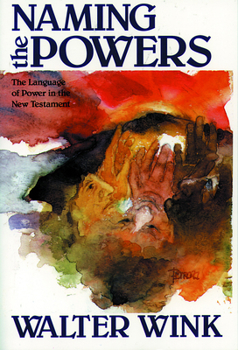Naming the Powers: The Language of Power in the New Testament
(Book #1 in the Powers Series)
Select Format
Select Condition 
Book Overview
The reader of this work will search in vain for a definition of power. It is one of those words that everyone understands perfectly well until asked to define it. Our use of the term 'power' is laden with assumptions drawn from the contemporary materialistic worldview. Whereas the ancients always understood power as the confluence of both spiritual and material factors, we tend to see it as primarily material. We do not think in terms of spirits, ghosts, demons, or gods as the effective agents of powerful effects in the world.
Thus a gulf has been fixed between us and the biblical writers. We use the same words but project them into a wholly different world of meanings. What they meant by power and what we mean are incommensurate. If our goal is to understand the New Testament's conception of the Powers, we cannot do so simply by applying our own modern sociological categories of power. We must instead attend carefully and try to grasp what the people of that time might have meant by power, within the linguistic field of their own worldview and mythic systems. "I will argue that the "principalities and powers" are the inner and outer aspects of any given manifestation of power. As the inner aspect they are the spirituality of institutions, the "within" of corporate structures and systems, the inner essence of outer organizations of power. As the outer aspect they are political systems, appointed officials, the "chair" of an organization, lawsin short, all the tangible manifestations which power takes. This hypothesis, it seems to me, makes sense of the fluid way the New Testament writers and their contemporaries spoke of the Powers, now as if they were these centurions or that priestly hierarchy, and then, with no warning, as if they were some kind of spiritual entities in the heavenly places."-from the IntroductionCustomer Reviews
Rated 5 starsThis is a volume one
It lays the foundations for the series. This it does well. It could be observed that the book is overly technical, and if it were the whole enchilada that would be so. I makes you want to read the rest of the series, and that is what a volume one should do. For a digested version of this series "The Powers That Be" by this author is a great book. For an in depth treatment, the trilogy is excellent. I would suggest both...
1Report
Rated 4 starsBuy this book for the third section
When I started this book I was disappointed, but I wasn't when I finished. The first section is a series of word studies on Greek words associated with the powers. The second section consists of expositions of troublesome passages dealing with spiritual powers. I found these sections useful, but rather dry. The third section was a surprise, which caused me to think more highly of the book. Wink takes the language of power...
0Report
Rated 5 starsMeticulous scholarship and inspirational interpretation
This book lists the various words that are used for power in the New Testament and evokes their meaning in the wide variety of contexts in which they are used. It really makes the language of the New Testament come alive. Throughout the book, Wink's warmth and humanity shine through. Speaking of conflict, he says 'I resolved never to embark on a conflict which would not end in my sitting down to a meal with my adversary.'...
0Report















